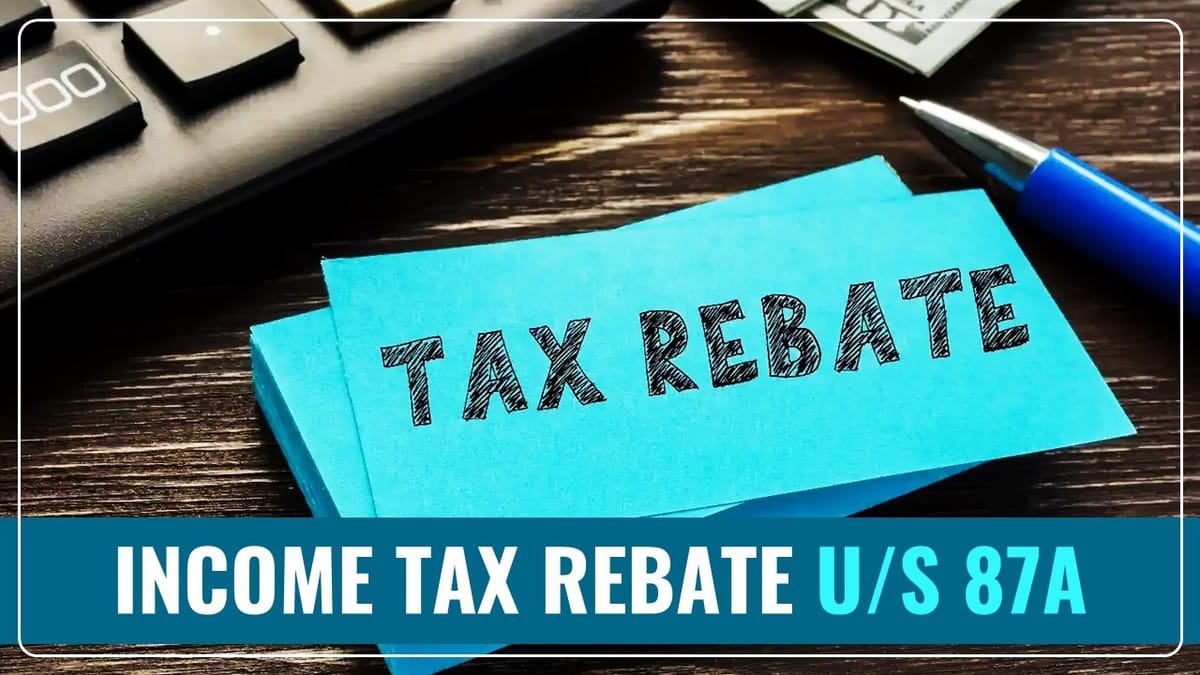Typically, an individual with an income of less than Rs.7 lakh who files an ITR under the new tax regime is eligible for a tax rebate of up to Rs.25,000 under section 87A.
Reetu | Sep 5, 2024 |

No Income Tax Rebate u/s 87A Despite Income Below Rs.7 Lakh
Individuals who were not subject to a tax audit had until July 31, 2024, to file their income tax returns for the financial year 2023-24 (assessment year 2024-25). If you submitted your ITR by the deadline, you may be waiting for it to be processed. Please keep in mind that if you missed the filing date, you could only file Belated ITR under the new tax regime.
You cannot file a belated income tax return (ITR) under the Old tax regime. It has to be filed using the new Income tax regime.
The income tax department explained how this may happen, saying, “It should be noted that the new tax regime will be the default regime beginning with the financial year 2024-25. The option to opt out of the new tax regime can be utilized by filing an income tax return with the ‘Opt-out’ option on or before July 31, 2024, which is the due date for filing returns under Section 139(1) of the Act.”
Typically, an individual with an income of less than Rs. 7 lakh who files an ITR under the new tax regime is eligible for a tax rebate of up to Rs. 25,000 under section 87A. In the Old tax regime, the highest rebate under Section 87A was Rs.12,500.
If the total taxable income of an individual is up to Rs. 7 lakh and they choose the new tax regime, they will be eligible for a rebate of:
“In the old tax regime, a resident individual whose total income does not exceed Rs.5 lakh received a 100% income tax rebate up to a maximum of Rs.12,500,” according to the income tax department website.
When this tax refund under section 87A is applied, an individual’s tax liability is eliminated, however, experts believe it is not granted in some exceptional cases.
Long-term capital gains from the sale of listed stock shares or equities-oriented mutual funds are not eligible for a rebate, even if the total income is less than Rs.7 lakh.
Furthermore, non-residents are ineligible for the section 87A tax rebate, according to an expert.
Furthermore, special rate incomes such as speculative income and virtual digital assets (VDAs) are not eligible for the section 87A tax rebate.
According to experts, short-term capital gains should qualify for a tax rebate.
“The Income-tax Act of 1961 (section 112A) states that a rebate under section 87A is not receivable against tax on long-term capital gains from the sale of listed shares or units of equity-oriented mutual funds. However, it is not specifically stated that you cannot receive a tax rebate under section 87A on short-term capital gains from the sale of listed shares or equity-oriented mutual fund units. So, on STCG, you should get the 87A benefit,” explains the expert.
However, Income Tax Utility is not allowing Section 87A rebate against STCG u/s 111A and other special rate incomes.
In case of any Doubt regarding Membership you can mail us at [email protected]
Join Studycafe's WhatsApp Group or Telegram Channel for Latest Updates on Government Job, Sarkari Naukri, Private Jobs, Income Tax, GST, Companies Act, Judgements and CA, CS, ICWA, and MUCH MORE!"